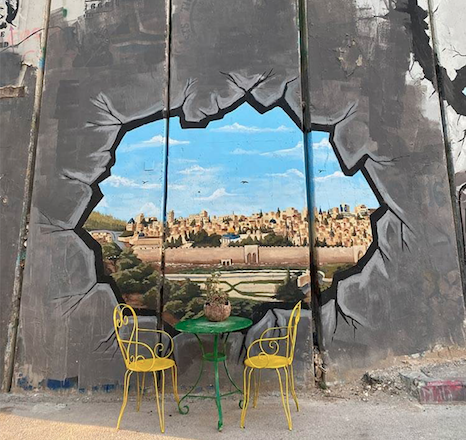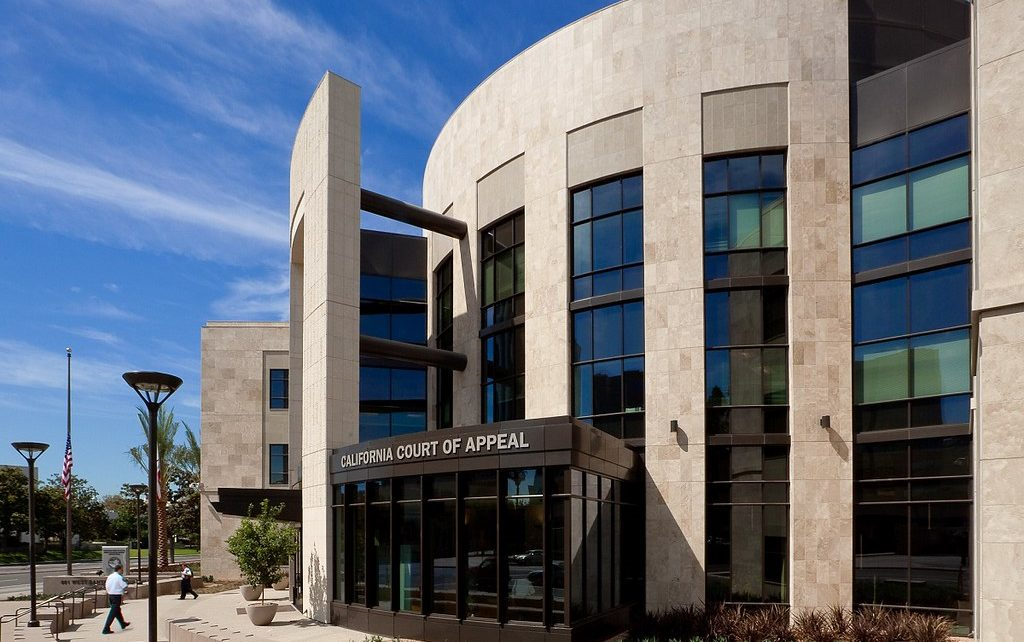
Previous Optimism vs. Hope in the Palestinian-Israeli conflict

By Daoud Kuttab
Three and a half years after an American Jordanian businessman filed a $31 lawsuit against the Vatican, the Latin Patriarchate of Jerusalem, and the American University of Madaba, a California judge has decided, on December 30th, 2022, that the plaintiff has no jurisdiction over these entities.
Robert Spitz, the lawyer for the plaintiff, Benjamin Seryani, says that he will appeal the case in Division 2 of California’s Fourth District Court of Appeal, located in Riverside.
Sami El-Yousef, the chief operating officer at the Latin Patriarchate of Jerusalem politely turned down a request for an interview about the court decision only saying “we are happy with the present outcome.”
Speaking on zoom, to Milhalard.org, and in the presence of his client, Benjamin Seryani, Spitz listed the basis of his appeal. “General jurisdiction requires continuous systematic and substantial relations with California that involves or benefits a California residence. The substantial flow of money meets the requirement of “minimum contact” which is a basis for jurisdiction even if that money is not directly related to the lawsuit. “Spitz states that the California judge, the honorable Donald Alvarez, does not mention that a million dollars are transferred every year from California to the Latin Patriarchate in Jerusalem. “The fact that the judge omits that shows that there is a clear bias in the decision of the judge” Spitz argued.
In their email response, the Latin Patriarchate’s CEO El Yousef responded to Milhalard that they are happy with the outcome. “Thank you for reaching out “The Latin Patriarchate has wished from the beginning that this case be resolved in court and has refrained from high publicity. The position has not changed. We are happy with the present outcome and prefer to concentrate on the wonderful pastoral, educational, and humanitarian services provided to tens of thousands annually in the territory covered by the Latin Patriarchate. Thank you for your interest.”
In his 18-page decision, Judge Donald Alvarez, of the Saint Bernardino County Superior Court, ruled in favor of the defendants saying that he was not “persuaded” by the arguments of the plaintiff. “Plaintiff has not met his burden to establish jurisdiction.” The judge argued that the money from California goes through the Grand Magisterium in Rome rather than directly to LPJ [Latin patriarchate of Jerusalem].”
The judge continues: “With respect to the factual dispute as to whether [former Patriarch Fouad] Twal’s visits to California fund-raising in nature, the court finds the Defendants’ declarations to be more insufficient evidence to establish that Defendants have purposefully availed privilege of conducting fund-raising activities in this forum.”
Judge Alvarez also questioned Seryani’s residency in California. “There is conflicting evidence on Seryani’s residence at the time of the events at issue. Plaintiff’s claim to be a California resident at the time of contracting is contradicted by his own sworn declaration filed in the State of New Hampshire [“I was a resident of the Kingdom of Jordan during the time September 1st, 2012, through 18th, of November 2015.”].
Seryani’s lawyer. Robert Spitz notes that in his decades of being a US lawyer, he has never seen a judge omit substantial facts from the case when making a judgment. “In 43 years of legal practice, I have never seen a judge intentionally ignore facts when making a decision.” Spitz calls the California judge “biased to the Catholic Church” and argues that the “judge made up his mind and then walked back looking for ways to support his own decision.”
Lawyer Spitz says that the “judge omitted an entire set of facts about the movement of money from California to Jerusalem and only focused on the argument that the money went to California and from there to a third location – not even mentioning Jerusalem.” As to the residency issue, Spitz also argues that the judge failed to note Seryani testimony and choose to take a single sentence out of context noting that anyhow “it is possible to be a resident both in California and in Jordan.”
Judge Alvarez concludes his decision by stating that “the contracts were formed in Jordan, between parties in Jordan, to be performed in Jordan, with the alleged breaches occurring in Jordan. Dismissal is appropriate.”
Both Spitz and Seryani took strong opposition to the judge’s use of the case in Jordan to which the Church and the American University in Madaba claimed that the long-term service contract that Seryani was working on for years in Jordan was fraudulent. Seryani was not present, and the decision was made in absentia. “We presented the court with the valid contract and the authenticity of our contract was never questioned in court,” said Seryani. Lawyer
Spitz took strong opposition to the mention of this case by Judge Alverez. “The decision talks about judicial notice of the claims that the contract was a fraud. It is unbelievable that the judge would take the decision of a court in Jordan without facts being argued. The contract was presented among the documents, but the proceedings did not include any argument about the authenticity of the contract.” Advocate Spitz argued that this is a “total abuse of the term judicial notice. The judicial notice does not allow the judge without evidentiary discussion to mention a case without setting the truth or falsehood of a claim.” The Latin Church’s own ecclesiastical court in Jerusalem had ruled in Seryani’s favor and had not entertained the allegation that the contract was not genuine.
Seryani, an American citizen says that the entire reason for going to court in America was because his contract was not honored in Jordan. “That is why I submitted my case in the US because of a decision in absentia.”
Advocate Spitz says that he plans to work with a qualified US appellate lawyer to prepare an appeal that must be submitted to California’s Fourth Appeal within sixty days. A three-person judge will decide the appeal.
In his summary, Judge Alvarez mentioned the details of the plaintiff’s refusal to participate in a money laundering scheme that led the Church to breach his contract. The judge repeated the plaintiff’s claim the Catholic Church attempted to use him, as an American citizen working for a Jordanian not-for-profit university to legitimize money laundering for the Church in the tens of millions of dollars. Spitz told Milhalard that the appeal will open the case to a wide range of US lawyers and legal experts, as well as the public and he expects that the “Catholic Church will suffer” as a result.
Asked if offered, he and his client would accept mediation in the case, Spitz was very clear. “We have always offered to find a settlement out of court, but the other side has refused.”
Full text of the court decision in pdf format below.
See previous articles on this case


تكافح مجلة “ملح الأرض” من أجل الاستمرار في نشر تقارير تعرض أحوال المسيحيين العرب في الأردن وفلسطين ومناطق الجليل، ونحرص على تقديم مواضيع تزوّد قراءنا بمعلومات مفيدة لهم ، بالاعتماد على مصادر موثوقة، كما تركّز معظم اهتمامها على البحث عن التحديات التي تواجه المكون المسيحي في بلادنا، لنبقى كما نحن دائماً صوت مسيحي وطني حر يحترم رجال الدين وكنائسنا ولكن يرفض احتكار الحقيقة ويبحث عنها تماشيًا مع قول السيد المسيح و تعرفون الحق والحق يحرركم
من مبادئنا حرية التعبير للعلمانيين بصورة تكميلية لرأي الإكليروس الذي نحترمه. كما نؤيد بدون خجل الدعوة الكتابية للمساواة في أمور هامة مثل الإرث للمسيحيين وأهمية التوعية وتقديم النصح للمقبلين على الزواج وندعم العمل الاجتماعي ونشطاء المجتمع المدني المسيحيين و نحاول أن نسلط الضوء على قصص النجاح غير ناسيين من هم بحاجة للمساعدة الإنسانية والصحية والنفسية وغيرها.
والسبيل الوحيد للخروج من هذا الوضع هو بالتواصل والنقاش الحر، حول هويّاتنا وحول التغييرات التي نريدها في مجتمعاتنا، من أجل أن نفهم بشكل أفضل القوى التي تؤثّر في مجتمعاتنا،.
تستمر ملح الأرض في تشكيل مساحة افتراضية تُطرح فيها الأفكار بحرّية لتشكل ملاذاً مؤقتاً لنا بينما تبقى المساحات الحقيقية في ساحاتنا وشوارعنا بعيدة المنال.
كل مساهماتكم تُدفع لكتّابنا، وهم شباب وشابات يتحدّون المخاطر ليرووا قصصنا.